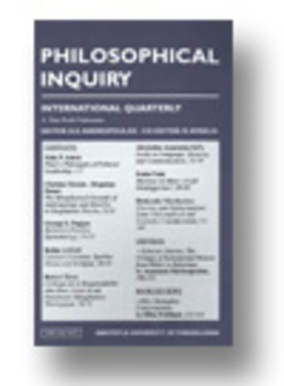Descartes' infallibility thesis
Part of : Philosophical inquiry ; Vol.XXV, No.1-2, 2003, pages 59-70
Issue:
Pages:
59-70
Author:
Abstract:
Descartes has long been assumed to hold on to the doctrine that one has privileged access to one’s mental states. It is also usually assumed that this doctrine forhim included the assumption that the agent’s sincere avowals of her mental states isinfallible - that is, "necessarily if the subject makes a report [of her mental states],then it is true".2 * Thus, for example, Wilson writes that Descartes assumes that"[one’s] knowledge of [one’s] own mental states is certain and infallible; [one’s]judgment about them cannot be erroneous".1 Radner argues that Descartes maintainsthat "if I believe that I am in a certain (mental) state, then 1 am in that state".4I will call Descartes’ doctrine of infallible access to his mental states his infallibilitythesis. This paper aims to characterize the precise nature of Descartes’ infallibilitythesis, and to show that it is a more plausible thesis than has sometimes beenmade out. I begin by discussing a couple of criticisms which have been leveledagainst Descartes’ infallibility thesis. This discussion will then be used to illuminate the precise sense in which Descartes held on to this thesis.
Subject:
Subject (LC):




